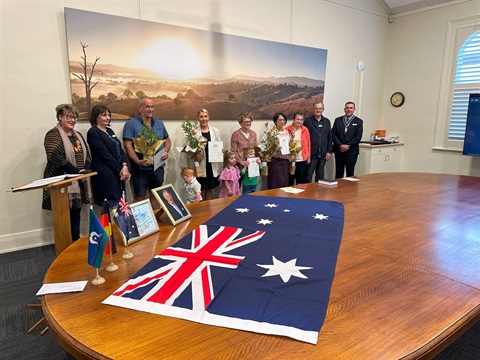This year will mark a decade since Tania Shirgwin had a stroke while she was asleep. The Tanunda woman was just 47-years-old and was living alone at the time.
“When I woke up, my body wasn’t working properly, I couldn’t move one side of it. When the feeling didn’t come back, I realised something was very wrong,” Tania said.
“Fortunately, I recognised the F.A.S.T. signs of stroke and called an ambulance. I was able to get to hospital quickly.”
Tania spent two weeks in hospital, and a further two weeks in rehab. She now lives with partial blindness and movement issues. She believes knowing the signs of stroke saved her life.
“I worked at a big winery at the time and completed some first aid courses. I’m sure knowing about facial droop, the inability to lift my arms, and slurred speech helped me survive my stroke,” Tania said.
While Tania knew the signs of stroke, not everyone has the same awareness.
In 2023, Stroke Foundation commissioned YouGov to survey thousands of Australians on their awareness of the signs and risks of stroke and test their knowledge of the F.A.S.T. acronym which highlights the most common signs of stroke (F for facial droop, A for inability to lift both arms, S for slurred speech and T stands for time- stroke is always a medical emergency so call an ambulance immediately).
The survey found that only seven per cent of South Australians living in the Barker region are aware of all three F.A.S.T. signs of stroke but seven in ten people could recall at least one of the F.A.S.T. signs.
Stroke Foundation Chief Executive Officer, Dr Lisa Murphy, says when it comes to stroke, acting quickly is crucial.
“When a stroke strikes, it attacks up to 1.9 million brain cells per minute, so time is of the essence when it comes to getting emergency medical treatment,” she said.
“The faster people can recognise the signs of stroke, the faster they can get specialist treatment which in turn leads to better recovery and health outcomes for the patient.”
Dr Murphy is urging all Barker residents to come together as a community and learn the F.A.S.T acronym if not for themselves, then for a neighbour, a loved one or a friend.
“If just one person in every household and workplace knows the F.A.S.T acronym, it can be the difference between someone surviving the stroke and living well after stroke, or having a long-term disability. Sharing that message may just save a life.”








